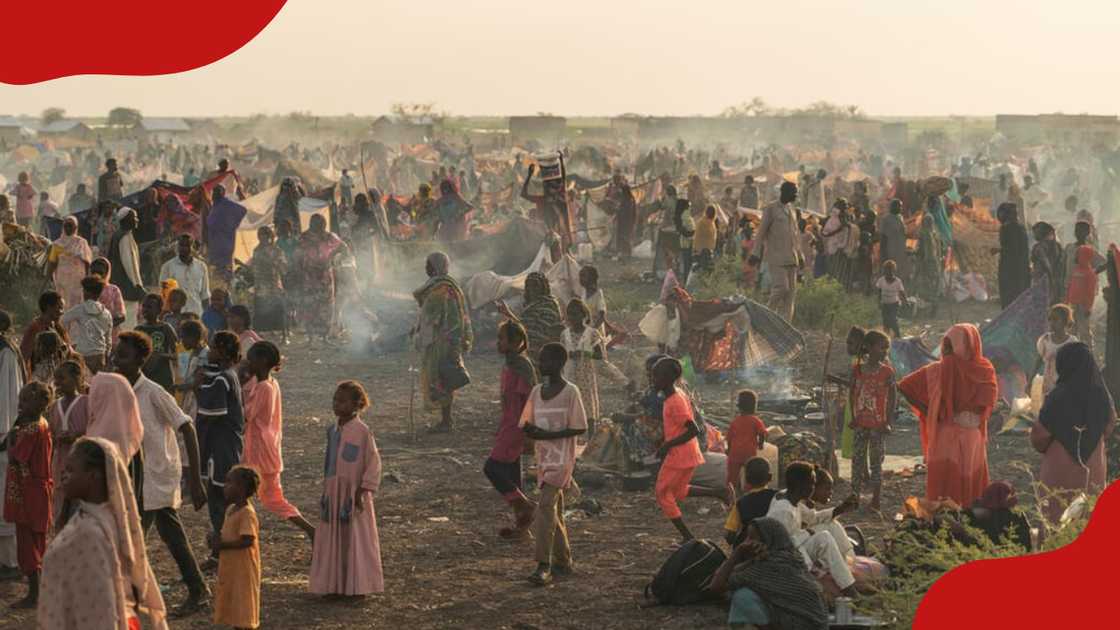The Devastation of Education in Sudan
Education in Sudan is no longer what it once was. The war that erupted in mid-April 2023 has transformed the country’s landscape, affecting its cities, people, and the very foundation of its future. Schools, which were once safe spaces for learning, have become places where children are recruited into armed conflict. This shift has left educators and families in despair.

More than two years into the conflict, field reports have revealed a troubling trend: child recruitment within educational institutions. In response, the Sudanese Teachers’ Committee has rejected what it calls the “war budget” proposed by the Ministry of Finance for 2026. According to the committee, the government’s decision to prioritize military spending over education and health is a clear violation of citizens' rights.
The committee criticized Finance Minister Jibril Ibrahim's remarks about the new budget, stating that the focus on war efforts ignores the fundamental needs of the population. It emphasized that education and health are the pillars of any nation striving for progress and stability. By diverting resources to the war, the government is not only failing in its responsibilities but also jeopardizing the future of its citizens.
The statement from the committee highlighted the dire conditions faced by teachers and students. With schools collapsing and wages insufficient to meet basic needs, many educators are struggling to survive. The committee called for a reevaluation of the budget to ensure fair allocation to the education sector and improved salaries for teachers and public employees.
Learning Under Hardship
Access to public schools has become increasingly difficult, with some regions being disproportionately affected. Suleiman Mohamed Suleiman, a parent from East Darfur, shared his concerns about the challenges faced by students from his region. He reported that dozens of students from East Darfur were detained while trying to pursue university education, and thousands were barred from taking final exams due to their location in areas controlled by the Rapid Support Forces.
This situation has led to a significant drop in student morale, with many abandoning their studies. The war has not only destroyed physical structures but also disrupted the educational process. According to media reports, as the new school year begins, thousands of students are either displaced or dead, and many schools have been reduced to rubble or turned into shelters for displaced families.
A member of the Teachers’ Committee, who requested anonymity, stated that school attendance does not exceed 30%. Most students have either been displaced or joined the battlefronts. Classes are now largely concentrated in private schools in central Nyala, where the government’s delayed and insufficient salaries fail to meet the basic needs of teachers and their families.
Recruitment in Classrooms
In addition to the challenges of access and funding, there are alarming reports of schools being used as recruitment centers for children. The Sudanese National Observatory for Human Rights condemned the closure of schools and the suspension of classes in Nile River State, calling these actions a violation of human rights and international law.
Field reports indicate that security forces have turned several schools into recruitment and training camps, where children are coerced or lured through manipulative methods. These practices are considered war crimes under international humanitarian law and the Convention on the Rights of the Child.
In response to the ongoing conflict, the Supreme Mobilisation Committee in Northern State declared a state of general mobilisation across all seven localities. This includes organizing popular resistance ranks, preparing battalions, and opening mobilisation and training centers. The order also mandates the reactivation and retraining of those previously given military instruction.
Calm Returns to al-Fashir
Despite the ongoing conflict, there are signs of hope. Calm has returned to the city of al-Fashir in North Darfur after the Establishment Coalition Forces took control. Markets and schools have reopened, and the streets have regained a sense of normalcy, according to field reports.
In this context, the Council of Ministers issued Decision No. (7) for the year 2025, expanding the mandate of the Independent National Committee investigating alleged violations in al-Fashir. The decision, based on specific constitutional and legal provisions, added new members to the committee, including representatives from forensic medicine, the Ministry of Interior, and military justice. This move aims to enhance the inclusivity and independence of the investigation.
The decision allows the Prime Minister to appoint additional members at any stage of the investigation and enables the committee to employ administrative staff to facilitate its work. The decision came into effect on November 4, 2025, marking a step toward accountability and justice in the region.